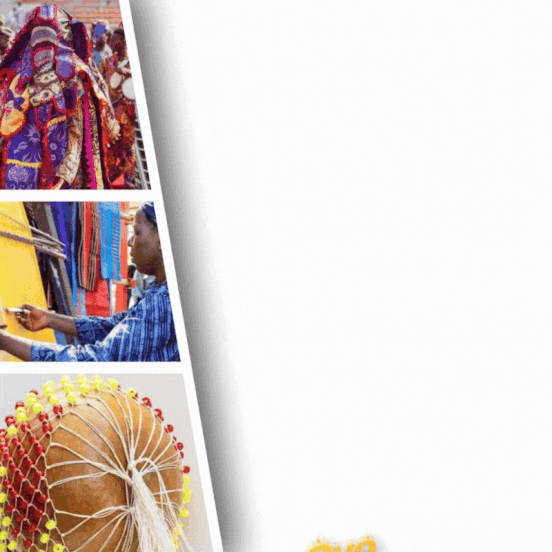Over the past few weeks, we’ve spotlighted a lineup of political gladiators, seasoned lawmaker, business tycoons, technocrats, and power brokers shaping the early frameworks of the Oyo 2027 governorship race. From well-worn political actors to “freshers” backed by deep structures, we’ve featured six leading names, dissecting their strengths, challenges, ambitions, and alignments. But one name continues to ring through conversations, not necessarily from press briefings or campaign posters, but from rumours on the streets, discussions in markets, and murmurs even in public transport. The name is Engr. Jubril Dotun Sanusi, the man many refer to simply as “Ilaji.”
Not your typical politician. Not even a declared one. Yet, in a state passionate for pragmatic leadership, Dotun Sanusi’s emergence as a serious contender, though reluctantly, has become a political mythos too important to ignore.
Born in 1968 into the revered Sanusi family of Oja’ba, Ibadan, Dotun Sanusi’s story is a satisfying journey from the gritty streets of Elekuro to the elevated boardrooms of Nigeria’s oil and gas industry. A proud alumnus of the famous Wesley Primary School and CAC Grammar School, Aperin Oniyere, he would later gain a degree in Petroleum Engineering from the University of Ibadan, a solid foundation that would anchor his rise as an industrial force.
Sanusi’s career commenced with major oil firms such as Halliburton Nigeria Limited and Agpem Drilling before he established TNL Drilling Services, a wholly indigenous firm that would soon rival with global companies in Nigeria’s upstream oil sector. However, Sanusi’s vision extended far beyond profit. In 2010, he returned to Ibadan with a clear goal: to transform, not just trade.

Hence, what followed was an heavy wave of rare development. From the Institute of College of Arts, Science and Technology (ICAST) in Elebu, to Ilaji Farms and the now-renowned Ilaji Hotels and Sports Resort in Oloyo Village, Ona Ara Local Government, Sanusi’s investments have become symbols of sustainable development. Ilaji Resort is more than just a hotel for hospitality, It’s that socioeconomic powerhouse. It brought back electricity to over 30 communities left in darkness for 14 years, created hundreds of jobs, and established a football academy in partnership with Malaga FC in Spain, putting Ona-Ara on both the national and global map.
Strikingly, despite his more than obvious impact, Dotun Sanusi is still not affiliated with any political party. He doesn’t grace political caucuses or party meetings. Yet, the people won’t stop clamouring. In 2023, he offered a rare bipartisan endorsement, endorsing both Bola Tinubu (APC) and Seyi Makinde (PDP), signalling his strategic neutrality. Today, in a quiet yet potent build-up to 2027, a grassroots wave branded “JDS” is rising, not from consultants or political war rooms, but from market women, traditional leaders, youths, clerics, and Baales who once gathered resources to urge him to run.
He has continuously insisted he is not interested in contesting. “I am not doing what I do for political gains. I am committed to the greater good of our people. Giving is part of my life,” he said in a statement urging supporters to suspend their campaigns on his behalf. However, for anyone who understands the “coded” language of Nigerian politics, that reluctance is telling. In fact, that reluctance might just be his strongest asset. It presents him as a man who didn’t seek power but had it thrust upon him by a people desperate for something different.
Sanusi enjoys something many candidates can only buy: the public trust. It’s not the kind that’s engineered through political marketing or endless handouts. It is earned, from years of sustained, visible transformation. His brand is not about noise; it’s about evidence. From hospitality to agriculture, from sports to rural electrification, the proof is there. The are quite glaring.
In Oyo, where political parties still wield heavy influence, Sanusi’s movement stands out because it transcends political lines. If he were to throw his hat into the ring, APC, PDP, Accord, SDP, any of them would likely welcome him. In fact, he could emerge as a rare consensus candidate, backed by people before being endorsed by parties. It’s not difficult to imagine a scenario where parties court him, not the other way around.
Still, the road to Agodi is not paved with that goodwill alone. Sanusi is, as it stands, a movement without machinery. To win in Oyo, one must possess not just public appeal, but strong political infrastructure, ward-by-ward agents, a network of loyal foot soldiers, logistics, and yes, a well-oiled electoral protection mechanism. His reluctance to declare could risk stalling momentum and give room for more determined and aggressive candidates to dominate the early narrative.
Again, let’s be clear, his opponents are not sleeping. Former senators, active politicians, ex-reps, and even deputy governors are already aligning forces and building structures gradually. Sanusi must be prepared for the politics of propaganda, intentional and unintentional betrayal, and subtle sabotage. Oyo is no stranger to godfatherism, and avoiding its pitfalls without losing grip of the grassroots will be a dangerous dance.
However, if he does declare, and does so strategically, Sanusi could be that game-changer. His engineering background, business instincts, and social track record make him primed for results-based leadership. Beyond his wealth, he is connected to power, to policy, to the people. His endorsement of President Tinubu and support for Governor Makinde was not mere symbolism; it showed his reach and influence. From Ona-Ara to Elekuro, and across religious and cultural communities, he commands organic respect, very rare in today’s politically manufactured landscape.
Yes, his strength lies in being shaped by purpose, not ambition. He may not be a politician by profession, but he has become political by impact. In today’s Oyo political climate, where people are no longer impressed by career politicians, Sanusi represents a fresh archetype, one who did the work before seeking the office.
Yet, he must act fast. Oyo politics and politicians does not really wait for latecomers. If he truly wants to answer the people’s call, he must decide early and decisively. A delayed entry could hand over his goodwill to opportunists who may ride his popularity without his purpose. He needs to identify with a structure, not to compromise his independence, but to convert energy and work into votes. And more importantly, he must resist the almost inevitable godfathers, avoid transactional alliances, and protect his authenticity. That’s what makes him different. He must keep it that way.
Then again, there is the geographical spread. Oyo is more than Ibadan. Sanusi’s message must reach Oke-Ogun, Ogbomoso, Ibarapa, and the old Oyo belt. His ideas must become a vision for the whole state. He must assemble not just supporters, but thinkers, people who comprehend the complexities of modern governance and can help translate vision into policy.
Interestingly, despite Engr. Dotun Sanusi’s repeated statements to his supporters that he is not interested in running for office, the growing political momentum around his name suggests otherwise. The sudden shift in narrative, from being simply “Dotun Sanusi” to “Jubril Dotun Sanusi”, appears to be a calculated move by his well-wishers and political strategists to galvanize support, especially in the run-up to the 2027 election. There’s a noticeable sense that his name is being rebranded, aligning with religious and cultural sentiments in a way that could appeal to a broader base. The introduction of “Jubril” alongside his name seems to signal a deliberate strategy to strengthen his appeal within certain religious communities that view his potential leadership as necessary.
Yes, this effort to craft a narrative around him as a political force, despite his reluctance, identifies that the movement surrounding Sanusi is taking shape independently of his expressed intentions. It is hard to ignore the fact that, while Sanusi may claim indifference, his supporters are actively positioning him as the next figure of hope for Oyo’s future. This subtle yet growing momentum could push him to reconsider his stance as the political landscape becomes more defined. The clamour around “JDS” is not just noise. It’s an obvious movement.
Oyo is watching. So are the parties. So are the people. The question is: will Engr. Dotun Sanusi listen, will he be ready to govern Oyo and lead his people and finally answer the call?
Ogungbile Emmanuel Oludotun writes for Oyo Affairs

